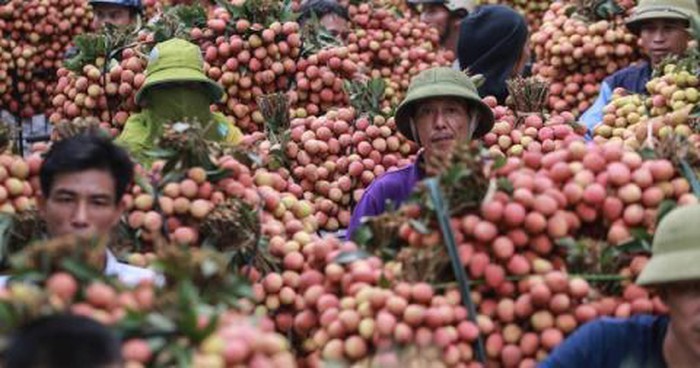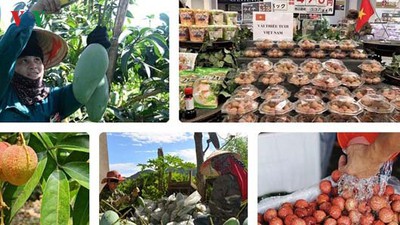The first consignments of litchis grown in Hai Duong province shipped to Singapore hit the newspapers, and, in the past, local newspapers also reported the first shipments of litchis to Japan and the US, and the first shipments of dragon fruit to the US and Australia.

But it appears that the export of hundreds of thousand of tons of fruits to China doesn’t matter because fruits have been exported to China for many years and it is not "new" news.
Only when troubles occur with the Chinese market, which makes it impossible to export fruits to China and leads to an oversupply, will local newspapers publish stories about the market.
Nguyen Van Nam, former director of the Trade Research Institute, said Vietnam needs to diversify markets to disperse risks.
Vietnam’s products can satisfy requirements in quality, design and packing and can be accepted by many markets.
Experts and government officials have called on Vietnamese businesses to diversify markets because China is an unstable market.
| The first consignments of litchis grown in Hai Duong province shipped to Singapore hit the newspapers, and, in the past, local newspapers also reported the first shipments of litchis to Japan and the US, and the first shipments of dragon fruit to the US and Australia. |
Changeable policies, epidemics and troubles at border gates can lead to stagnation in Vietnam’s exports across border gates, affecting Vietnamese exporters.
However, Nam believes that in the long term, China will remain a big market for Vietnam.
He said Vietnamese exporters need to study the Chinese market to better understand it. The vast market doesn’t set overly high requirements and it regularly imports products in large quantities.
“Even the US and Europe want to sell products to China, let alone Vietnam, which is right next to the country,” Nam said when asked if Vietnamese exporters should restrict exports to China because of existing problems.
“It would be foolish to miss such a vast market,” he said.
Nam went on to point out that Vietnamese businesses mostly sell farm produce to Chinese provinces near the border with Vietnam. They could get higher profits if they export products through official channels, targeting choosier consumers.
“Once Vietnam’s products enter the Japanese, European and American markets, they can be easily sold to China through official channels,” he said. “Exporting through official channels, Vietnamese businesses won’t meet troubles with cross-border trade."
Businesses need to both exploit the Chinese market and diversify markets, Nam said. Hoang Anh Gia Lai Group is an example. It exports bananas to Japan, South Korea and Singapore, while China buys 70-80 percent of its exports.
Thanh Mai

Cambodia yet to issue documents banning import of Vietnamese fruits, vegetables: ministry
The Cambodian government and management agencies have yet to issue any official documents banning the import of Vietnamese vegetables and fruits, according to the Asia-Africa Market Department under the Ministry of Industry and Trade.

Vietnamese fruit increasingly popular among foreign consumers
Mai Chau mangoes from Son La province and Luc Ngan lychees from Bac Giang province have enjoyed being exported for the first time to the United States and Japan, where they have so far proved to be a hit among foreign consumers.
 The first consignments of litchis grown in Hai Duong province shipped to Singapore hit the newspapers.
The first consignments of litchis grown in Hai Duong province shipped to Singapore hit the newspapers.